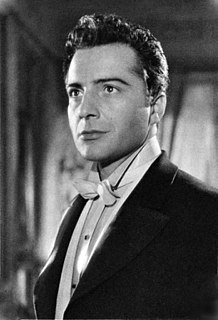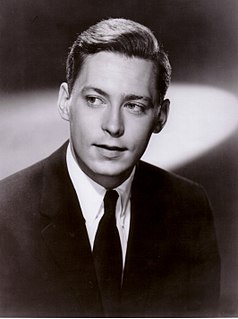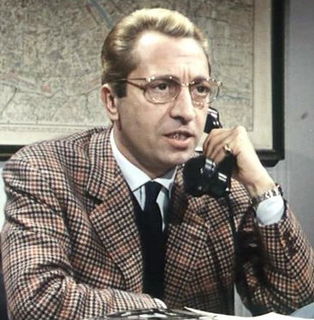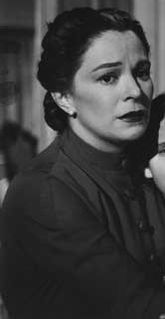The Roman Inquisition, formally the Supreme Sacred Congregation of the Roman and Universal Inquisition, was a system of tribunals developed by the Holy See of the Roman Catholic Church, during the second half of the 16th century, responsible for prosecuting individuals accused of a wide array of crimes relating to religious doctrine or alternative religious doctrine or alternative religious beliefs. In the period after the Medieval Inquisition, it was one of three different manifestations of the wider Catholic Inquisition along with the Spanish Inquisition and Portuguese Inquisition.

Vittorio Gassman, popularly known as Il Mattatore, was an Italian actor, director and screenwriter.

Zachary Scott was an American actor who was most notable for his roles as villains and "mystery men".

Eduardo De Filippo, also known simply as Eduardo, was an Italian actor, playwright, and screenwriter, best known for his Neapolitan works Filumena Marturano and Napoli Milionaria. Considered one of the most important italian artists of the 20th century, Eduardo was the author of many theatrical dramas staged and directed by himself first and later awarded and played outside Italy. For his artistic merits and contributions to Italian culture, he was named senatore a vita by the Italian Presidente della Repubblica Sandro Pertini.

William Herman Katt, known as Bill Williams, was an American television and film actor. He is best known for his starring role in the early television series The Adventures of Kit Carson, which aired in syndication from 1951 to 1955.

Gino Cervi was an Italian actor.

Rossano Brazzi was an Italian actor.

An anthology series is a radio, television, or film series that presents a different story and a different set of characters in each episode, season, segment or short. These usually have a different cast in each episode, but several series in the past, such as Four Star Playhouse, employed a permanent troupe of character actors who would appear in a different drama each week. Some anthology series, such as Studio One, began on radio and then expanded to television.

Vincenzo Cardarelli, pseudonym of Nazareno Caldarelli was an Italian poet and journalist.

John Grinham Kerr was an American actor and attorney. He began his professional career on Broadway, earning critical acclaim for his performances in Mary Coyle Chase's Bernardine and Robert Anderson's Tea and Sympathy, before transitioning into a screen career. He reprised his role in the film version of Tea and Sympathy, which won him a Golden Globe Award for Most Promising Newcomer, and portrayed Joseph Cable in the Rodgers and Hammerstein movie musical South Pacific. He subsequently appeared in number of television series, including a starring role on the primetime soap opera Peyton Place.

Luigi Zampa was an Italian film director.

Andrea Checchi was a prolific Italian film actor.
Marc-Gilbert Sauvajon was a French film director, script-writer, playwright and author.

Aroldo Tieri was an Italian actor. He appeared in 107 films between 1939 and 1969.

Vittorio Caprioli was an Italian film actor, director and screenwriter. He appeared in 109 films between 1946 and 1990, mostly in French productions. He was born and died in Naples, Italy.

María Rosa Gallo was an Argentine actress.

Marcelle Maurette (1903–1972) was a French playwright and screenwriter who is particularly well known for her play Anastasia (1952) which brought her international recognition, and inspired a film of the same name. It is not her only play centred on a woman with a tragic story. Many other works of hers feature historical or fictional heroines with dramatic lives. She was honoured with various awards and was a prominent French literary figure.
Marcelle Tassencourt was a French actress and theatre director.

Francesco Carnelutti was an Italian jurist and lawyer.
La Fiera Letteraria was a weekly Italian magazine of letters, sciences and arts. It was founded in 1925 with the subtitle "Weekly Magazine of Letters, Sciences and Arts" and was published until 1977.


















